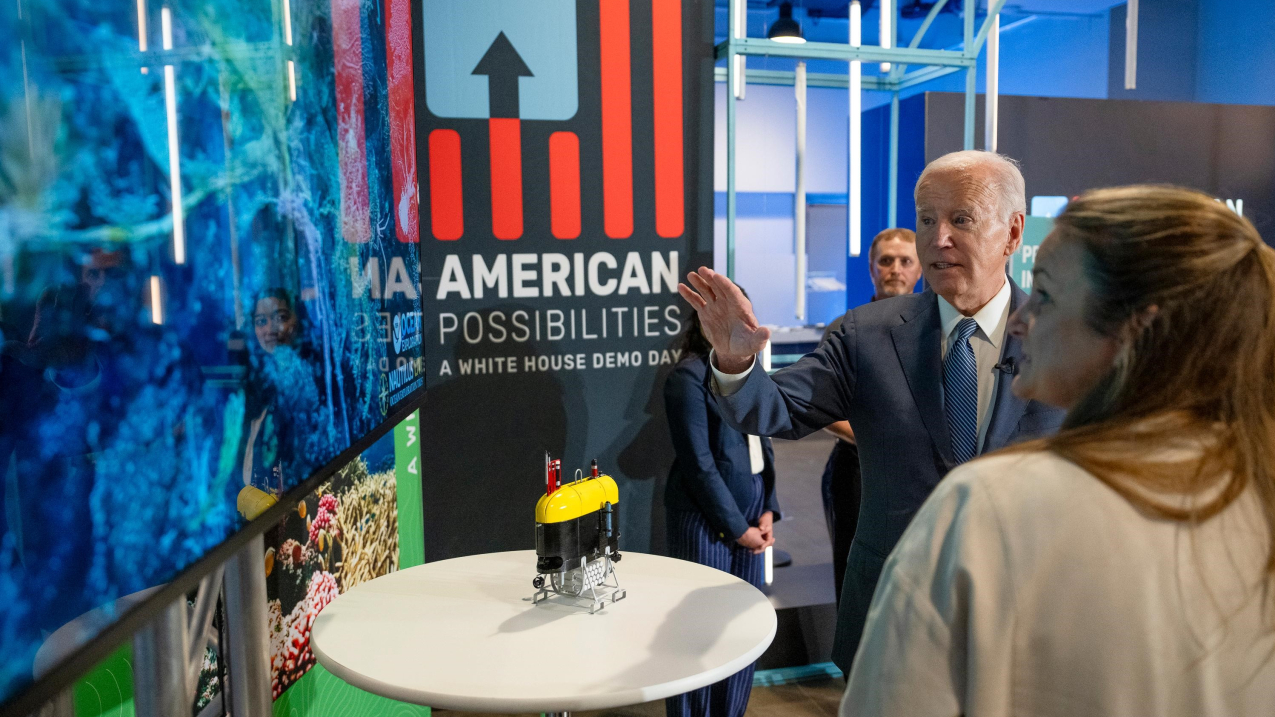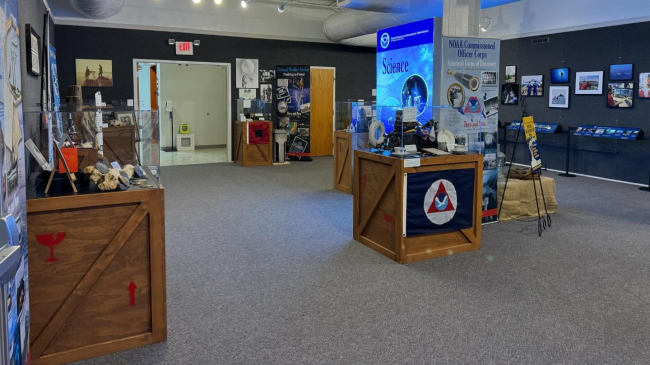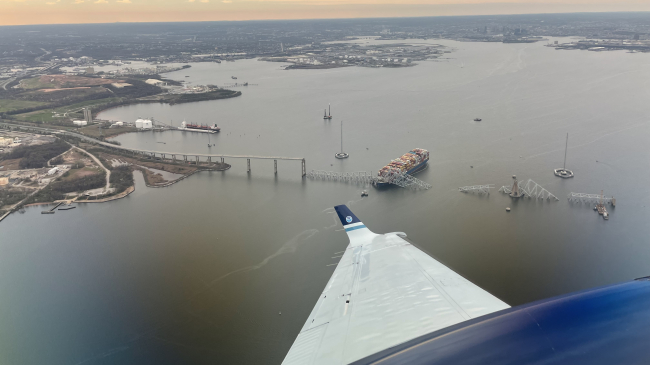
President Joe Biden and Allison Fundis, Chief Operating Officer of Ocean Exploration Trust, discuss how new technologies are improving our understanding of the creatures and features in the nation’s vast Pacific waters while exploring a NOAA Office of Marine Sanctuaries exhibit at American Possibilities: A White House Demo Day, on November 8, 2023. The exhibit was titled, "Pacific Remote Islands: Celebrating our Natural and Cultural Heritage through Ocean Exploration." (Image credit: The White House)
From heat health journeys to deep-sea exploration, NOAA sizzled and made a splash at the recent White House Office of Science and Technology Policy event, “American Possibilities: A White House Demo Day.”
The event’s purpose was to highlight science and technology innovations — made possible by federal investment — that benefit the lives and livelihoods of Americans and hold the potential to shape the future. Over 900 participants attended the invitation-only event, including President Joe Biden, members of Congress, government agencies, academia and industry.
Morgan Zabow from NOAA Research, Rafael DeAmeller from the NOAA VizLab and Juan Pablo Hurtado (Science on a Sphere® team showcased the National Integrated Heat Health Information System’s urban heat island campaigns, which aim to reduce the health impacts of extreme heat in underserved communities. Event participants had a chance to go on a heat health journey using virtual reality goggles, allowing them to safely learn about the dangers of extreme heat.
One attendee of note, President Joe Biden, spoke with NOAA staff and took a virtual reality ride through Washington, D.C.’s urban heat island. The data for this exhibit was acquired from the Washington, D.C., heat island campaign.
Attendees had a chance to cool down at NOAA’s other featured exhibit, which centered on NOAA’s deep-ocean exploration and conservation work. The booth highlighted the NOAA Ocean Exploration Cooperative Institute (OECI)'s work in the Pacific Remote Islands Marine National Monument (PRIMNM), and demonstrated how ocean exploration technologies, as well as the diversity of ocean life, can be used to aid in climate change research, and provide a foundation for long-term conservation.
Lauren Wenzel and Kalani Quiocho from NOAA’s Office of National Marine Sanctuaries and Allison Fundis from NOAA Ocean Exploration’s OECI partner Ocean Exploration Trust (OET) shared information about how new technologies are improving our understanding of the creatures and features in the nation’s vast Pacific waters, the rich natural and cultural heritage of these areas and why they are in need of protection through a proposed national marine sanctuary. The booth featured amazing video footage and a live link to researchers on the OET’s Nautilus research vessel, and a model of the “mesobot,” a remotely operated vessel developed by Woods Hole Oceanographic Institute, and a new storymap on PRIMNM and the sanctuary designation process. "Mesobot" is a collaborative effort by WHOI, the Monterey Bay Aquarium Research Institute (MBARI), Stanford University and the University of Texas Rio Grande Valley. The project is funded by the National Science Foundation.
President Biden met with Allison Fundis (Chief Operating Officer of Ocean Exploration Trust, part of OECI) where they discussed the President’s excitement for new discoveries, linkages between the ocean and global climate change and his request that NOAA consider designating a proposed national marine sanctuary in the Pacific Remote Islands.
NOAA’s National Centers for Coastal Ocean Science also provided off-site support and expertise to an Environmental Protection Agency exhibit on the Cyanobacteria Network.



